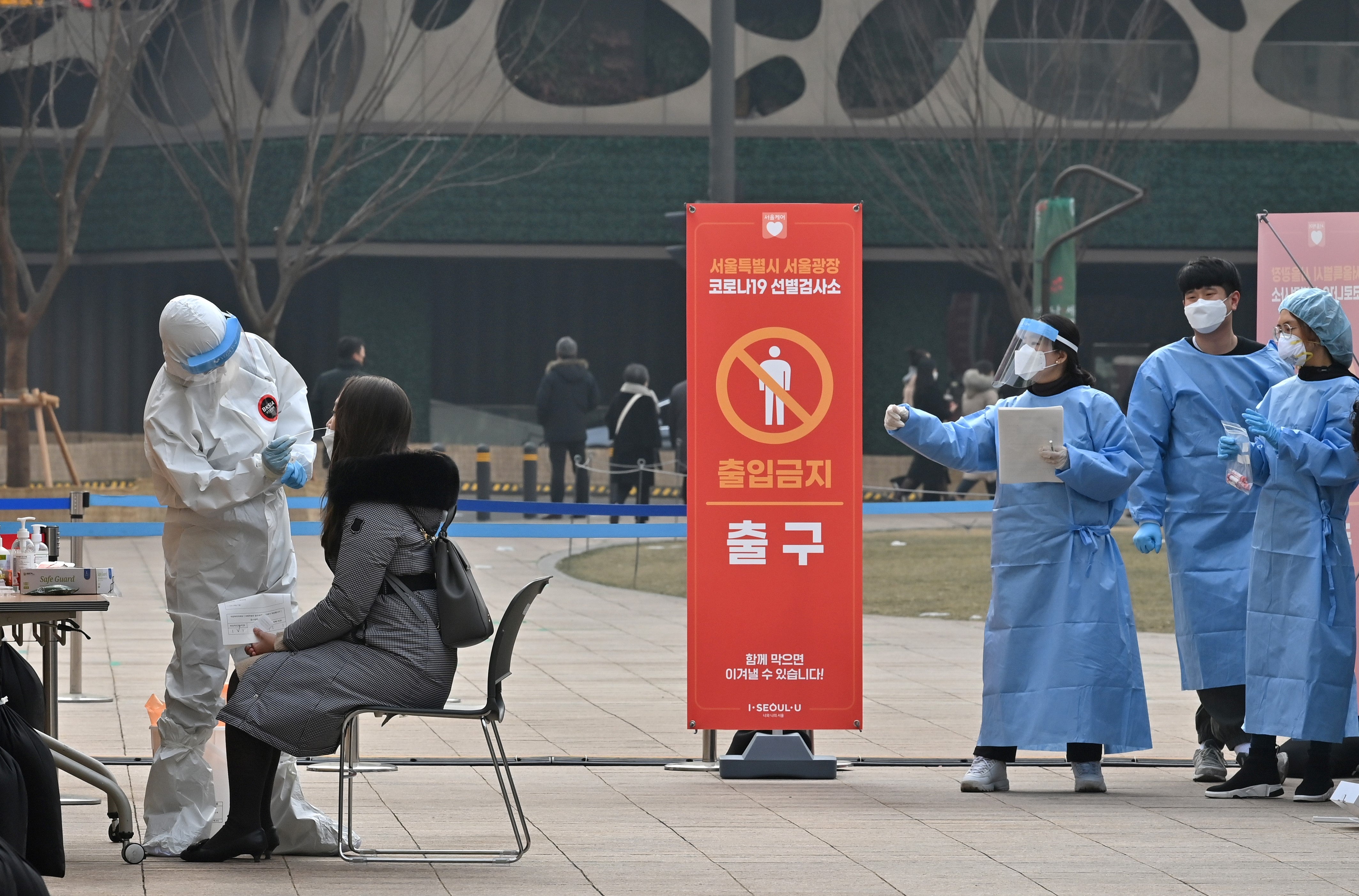Lockdown-free South Korea battling sudden surge in virus
Testing is being expanded to almost 50,000 people per day

Your support helps us to tell the story
From reproductive rights to climate change to Big Tech, The Independent is on the ground when the story is developing. Whether it's investigating the financials of Elon Musk's pro-Trump PAC or producing our latest documentary, 'The A Word', which shines a light on the American women fighting for reproductive rights, we know how important it is to parse out the facts from the messaging.
At such a critical moment in US history, we need reporters on the ground. Your donation allows us to keep sending journalists to speak to both sides of the story.
The Independent is trusted by Americans across the entire political spectrum. And unlike many other quality news outlets, we choose not to lock Americans out of our reporting and analysis with paywalls. We believe quality journalism should be available to everyone, paid for by those who can afford it.
Your support makes all the difference.South Korea is doing everything in its power to avoid a lockdown for fears that its economy could suffer as a result.
The country has managed to remain lockdown-free throughout the pandemic thanks to the success of its test and tracing system.
It was even praised by the World Health Organization (WHO) for the way in which it handled coronavirus in the early stages of the pandemic.
In April, the country published a guide to give other countries advice on how to tackle Covid-19 as they had done, but now the strategy is being tested like never before.
However, case numbers have surged in the past week, with new rates of infections topping 1,000 for over five days. This may not seem much compared to numbers seen in the US and Europe, but it is considerably higher than the daily average of about 100 seen in previous months.
The reason this most recent outbreak has been so hard to get on top of is due to the random nature of where the cases appear. They seem to be much more widespread and appearing in smaller clusters throughout the country.
People spending more time inside due to colder winter weather, and general fatigue of following restrictions may also be linked to the increase in the number of Covid infections.
Prime minister Chung Sye-kyun said Tuesday that ski resorts and tourist hotspots would be shut down to try and stem the spread. Entrance to nursing homes will also be restricted to protect the most vulnerable.
This comes after the Seoul Metropolitan Government said that, together with Gyeonggi Province and Incheon city, it would ban holiday parties of five or more from 23 December to 3 January.
Funerals and weddings are currently not included in the ban.
So far, the measures put in place by the government are not having the same desired effect as they have previously. South Korea doesn't have the legal power in placer to force people into a lockdown and it seems that South Koreans are beginning to tire of restrictions.
On Tuesday, South Korea had 1,092 new coronavirus cases the Korea Disease Control and Prevention Agency (KDCA) said. A record number of 1,097 cases was recorded Sunday.
Last week, Yoon Tae-ho, a senior health ministry official, said that although the criteria had been met for raising the virus alert to the highest level, the government was still considering the decision.
This was apparently due to fears that the “social and economic impact would be too great” with government officials saying that raising the alert to Level 3 would affect as many as two million businesses.
In South Korea, Level 3 means the highest level of social distancing rules and restrictions short of a lockdown.
To avoid this, authorities are expanding testing and have doubled the number of people being tested for the virus to nearly 50,000 per day.
Mr Tae-ho said: “The increase in preemptive tests and finding hidden patients early will inevitably lead to a temporary increase in the number of confirmed cases.” He added that this was an “effective strategy” to quickly bring the number of cases down.



Join our commenting forum
Join thought-provoking conversations, follow other Independent readers and see their replies
Comments